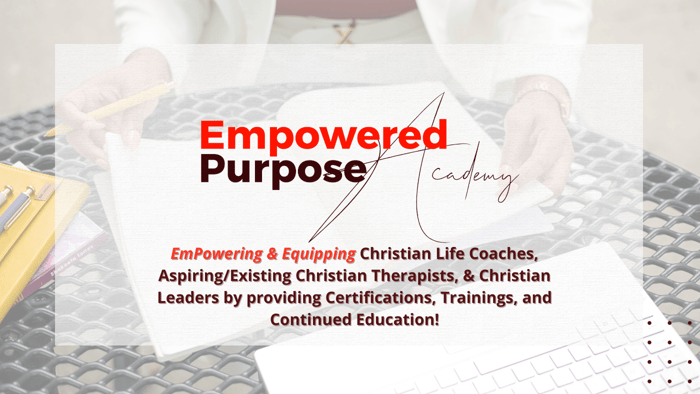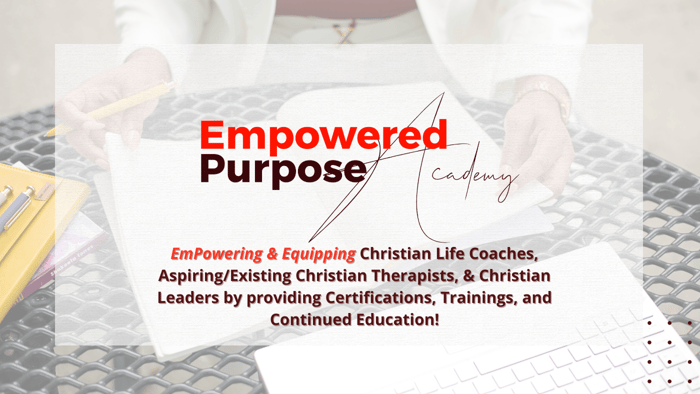10 Effective Coping Skills for Managing Anxiety
Coping with anxiety can be challenging, but there are a variety of coping skills and strategies that can help you regain control and find a sense of calm. While it's important to remember that everyone's journey with anxiety is unique, these 10 coping skills have proven to be effective for many individuals. Incorporating them into your daily routine can empower you to navigate anxious moments with greater ease and resilience.
1. Deep Breathing Exercises: Deep breathing is a simple yet powerful technique that can instantly reduce anxiety and promote relaxation. When you feel anxious, take slow, deep breaths, focusing on filling your lungs completely before exhaling slowly. This practice helps activate your body's natural relaxation response and eases tension. Also, do not forget to breathe when you are in environments that may trigger your anxiety. Often times we hold our breathe unintentionally and that can lead to a panic attack.
2. Mindfulness Meditation: Mindfulness meditation involves focusing your attention on the present moment without judgment. By cultivating awareness of your thoughts and sensations, you can create distance from anxious thoughts and reduce their power. Regular practice can enhance your ability to stay present and minimize anxiety's impact on your daily life. The purpose of mindfulness is to make sure you are in the present moment. One of the things that I love to do is walk outside in nature or lay in my portable hammock in my back yard and just be present in nature.
3. Regular Physical Exercise: Engaging in regular physical exercise not only benefits your physical health but also plays a crucial role in managing anxiety. Exercise releases endorphins, which are natural mood boosters, and reduces stress hormones. Find an activity you enjoy, whether it's jogging, swimming, yoga, or dancing, and incorporate it into your routine. Exercising releases endorphins that gives you healthy energy and makes you feel good about yourself.
4. Journaling: Writing down your thoughts and feelings can provide an outlet for anxiety and help you gain clarity. Set aside a few minutes each day to journal. You can write about your worries, fears, or any other emotions you're experiencing. Reflecting on your thoughts and identifying patterns can help you develop a deeper understanding of your anxiety triggers. I recommend using apps like daylio or journey if you prefer to use your cell phone.
5. Establish a Support Network: Reach out to friends, family, or support groups who can offer understanding and encouragement. Sharing your anxieties with someone you trust can provide a sense of relief and remind you that you're not alone. Surrounding yourself with a supportive network can also provide a sense of belonging and strengthen your resilience. You can join support groups on facebook, be sure it is being led by trained professionals.
6. Limit Stimulants: Caffeine, alcohol, and nicotine can exacerbate anxiety symptoms. Reduce or eliminate these substances from your daily routine, as they can contribute to restlessness, irritability, and increased heart rate. Opt for herbal teas or decaffeinated alternatives to help promote a calm state of mind. Another supplement that I have recommended to my clients over the years was mental calm but it is no longer available but, another great one is 5HTP.
7. Practice Self-Care: Self-care is essential for maintaining emotional well-being. Make it a priority to engage in activities that bring you joy and relaxation. Whether it's taking a warm bath, reading a book, practicing a hobby, or spending time in nature, dedicating time to self-nurture can help alleviate anxiety and enhance your overall sense of well-being. You can check out my podcast here called: Self Care vs. Soul Care.
8. Cognitive Restructuring: Challenge negative thought patterns and replace them with more realistic and positive alternatives. Often, anxious thoughts can be distorted or exaggerated. By consciously identifying and reframing these thoughts, you can reduce anxiety's impact and promote a more balanced perspective.
9. Progressive Muscle Relaxation: Progressive Muscle Relaxation is a technique that involves tensing and then releasing specific muscle groups in your body to promote relaxation. By systematically working through your muscle groups, you can release physical tension and experience a greater sense of calmness. Remember when your body is calm and relaxed this can automatically relieve some of your anxiety.
10. Seek Professional Help: If anxiety significantly impairs your daily functioning or persists despite your efforts, seeking professional help is crucial. A mental health professional can provide guidance, support, and additional coping strategies tailored to your specific needs. Therapy, counseling, or medication can be beneficial tools in managing anxiety.
Conclusion: Managing anxiety is an ongoing process that requires patience and persistence. By incorporating these coping skills into your routine, you can build resilience and regain control over your anxious thoughts and emotions.
Check out my blog on Anxiety and the Word of God. If you are interested in learning more about anxiety for yourself or your client enroll in my Anxiety Course: Understanding Anxiety.
You can learn more about this course HERE! Don’t forget to join our email list below to receive training and updates about a variety of topics.





